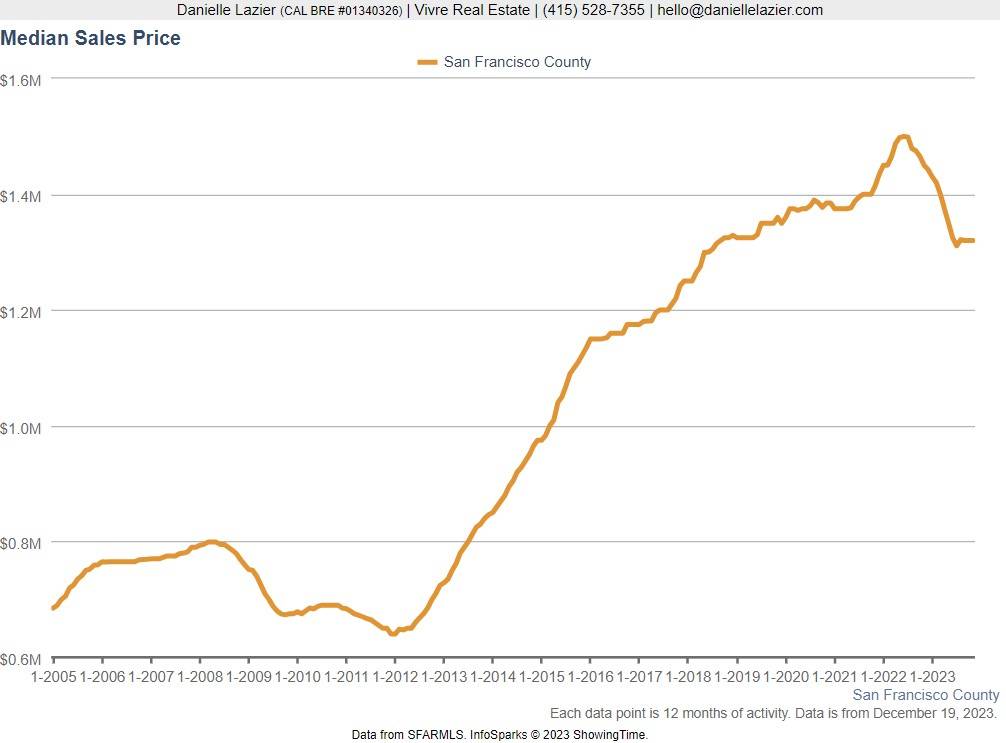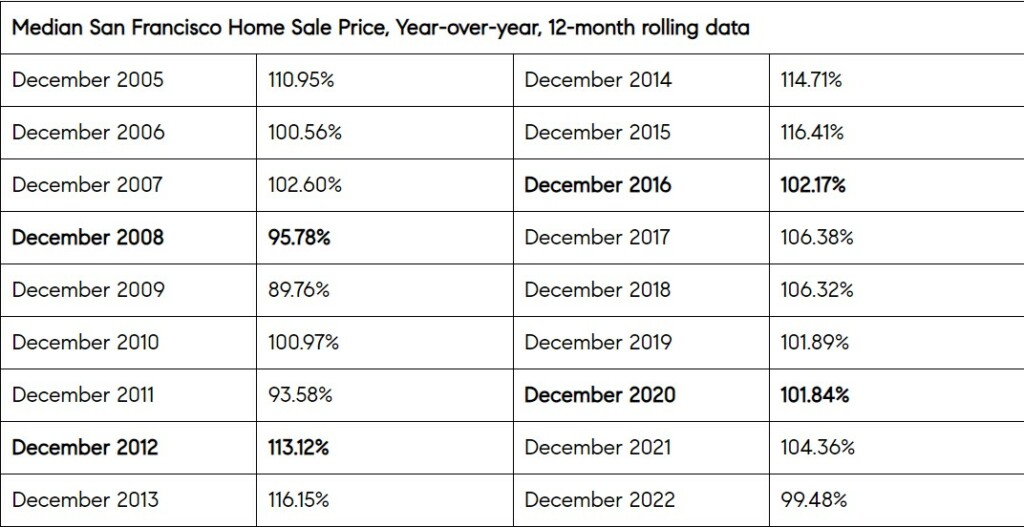Whether you’re a political junkie, a professional investor, an armchair economist, a current or prospective owner of San Francisco Bay Area real estate, or just a human being with an immune system, uncertainty has been the name of the game since at least 2020—the year that not only brought us COVID and all its turmoil but also the most hotly contested presidential election since, well, at least 2016. (They just keep getting hotter, don’t they?)
For some reason—perhaps a cruel, long-forgotten joke, or simply a scheduling error—every fourth year has a lot going on. Coming up in 2024, we have the leap day in February, then the Summer Olympics, and then a US Presidential election come November. When it rains, it pours. You might even have a few plans yourself, say… buying or selling a home in the SF Bay Area.
If you do have personal real estate goals for 2024, you might be wondering how these major events will make a difference. For starters, you get one extra day of house-hunting in February. That’s nice. And the Summer Olympics would be a great way to put your new living room to the test. However, the most important and impactful event is bound to be the election. That’s what we’ll be looking at today.
Of course, politics is a sticky subject, so let’s first lay some ground rules.
In this blog, we won’t be opening the giant can of worms that is US politics at the current moment. (No thanks, not with a 10-foot… worm-can opener?) Nor will we explore in-depth how real estate impacts presidential elections like the NYT does in their recent article, High Housing Prices May Pose a Problem for Biden. Plenty to unpack there... No, instead we’ll look at it the other way around: How does a US presidential election impact the real estate market?
With all the uncertainty that swirls around presidential elections, conventional wisdom suggests that home sales prices should be weaker, either falling or rising less quickly, in election years compared to non-election years.
As San Francisco Bay Area Realtors, our access to data via the local MLS goes back to 2005. Not a huge sample size to test the hypothesis, but let’s explore it nonetheless.

Click here for an interactive timeline. You can probably identify some key events.
So, there are those obvious trends, but are there any related to presidential election years? Let’s look a little closer.

San Francisco home sale prices did indeed fall in 2008 and the following year. However, this is easily attributed to the Global Financial Crisis aka Great Recession, rather than uncertainty around the Obama v. McCain election. The next election year, 2012, saw SF home prices grow considerably, more than 13%. Then 2016 and 2020 each saw minimal home price appreciation in San Francisco.
Again, it’s a small sample size, but we don’t see anything to indicate that presidential elections have a tangible impact on home sale prices. (Other metrics, like the total number of home sales, are similarly devoid of any election-based trends.)
While not explicitly covering the Bay Area, this Sacramento Appraisal Blog article on the topic also looks into mortgage rates and real estate sales volume ($ value of homes sold) during election years. Check it out—the author, Ryan Lundquist, put in a lot of work… ultimately to come to the same conclusion: “Part of me feels like I just wrote an anti-climactic post to say, ‘Bro, we don’t see one consistent trend during a presidential year.’” But we agree it’s a topic worth exploring!
What if we used something with a larger sample size, like the stock market? Fortunately, we are not the first to ask this question. A report from US Bank Wealth Management, How presidential elections affect the stock market, reviewed data going back to 1948. Looking every which-way at S&P 500 performance in election years since Dewey v. Truman, they too found a slim correlation between elections and market outcomes. Here are a few choice excerpts.
“Overall, the analysis points to minimal impact on financial market performance in the medium to long term based on potential election outcomes. The data also shows that economic and inflation trends have historically demonstrated a stronger, more consistent relationship with market returns than election results. [...]
“While it’s important to understand how election results may affect the stock market, investors are wise to consider other factors that might have an impact on their portfolios. The historical data suggests that economic and inflation trends tend to have a stronger, more consistent relationship with market returns than election outcomes.”
Here’s another perspective on the stock market from First Trust financial advisors. This PDF looks at the S&P 500 Index total returns during the presidential election years from 1928 to 2016.
In their research, First Trust found that:
In other words: not much correlation. Even going back almost 100 years, it’s still a minimal sample size. And, most importantly, there are other, stronger forces at work in the economy that far outweigh the uncertainty around elections. These include inflation, unemployment, global economic shifts, technological advances, and other macro trends that span years or even decades.
The lead-up to, and outcome of, the 2024 US presidential election may not have a huge impact on real estate in the SF Bay Area next year, or anywhere else in the country for that matter. However, we do have more reliable indicators to explore.
As of this time of writing in late 2023, it feels like we may be turning a corner in the economy. The Federal Reserve has paused further hikes to the benchmark rate, and their recent projections for 2024 include three rate cuts, with even more rate cuts projected to follow in 2025 and 2026. In response, financial markets were (perhaps a bit too) exuberant, with the Dow and S&P 500 posting new record or near-record highs. Mortgage rates saw their largest two-day drop in decades. It seems increasingly likely that we are in our final descent for that fabled ‘soft landing’ after all.
If the economy stays relatively stable throughout 2024 and mortgage rates continue to fall, we expect more home sales and higher sale prices in the SF Bay Area real estate market. Far more than elections, or even the nebulous concept of uncertainty, interest/mortgage rates are the #1 factor upon which our market hinges. (Truthfully, we’d argue that lack of supply is the fundamental factor in our SF Bay Area market, but there’s little hope of that dynamic shifting substantially in the next year.)
We’ll shed more light on this in our full 2024 Predictions post—coming soon to a San Francisco Real Estate Blog near you! Until then, vote early, vote often, etc etc. And, when the time comes to buy or sell real estate in the SF Bay Area, you know who to call/text/email for trusted, candid advice.
As top San Francisco Realtors, we’ve been helping clients navigate the ups and downs of the market (and numerous presidential administrations) since 2002. With over $1 billion in successful sales for our clients and more than 500 five-star San Francisco Realtor reviews, we have the track record to prove it.
Please don’t hesitate to reach out with any real estate questions. Click here to contact us.
In the meantime, why not sign up for our email newsletter so you never miss an awesome article like this? Get SF Bay Area real estate insights, top Realtor tips, plus curated local stories, events, and culture, delivered straight to your inbox—no spam or games. Sign up below, won’t you, and let’s talk soon?
